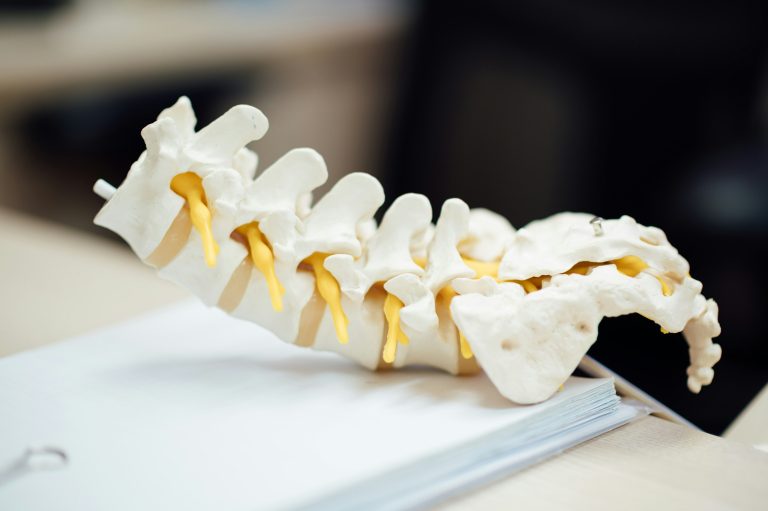Back pain in the morning: prevention and managment tips
Back pain in the morning is a common issue that many individuals experience. Waking up with back pain can be disruptive and affect one's ability to start the day feeling refreshed and energised
The Impact of back Pain
There are several factors that can contribute to back pain in the morning, including poor posture, muscle imbalances and underlying medical conditions such as arthritis or spinal stenosis.

Research has shown that back pain is a common condition, with estimates suggesting that up to 80% of individuals will experience back pain at some point in their lives. It can affect people of all ages, but the prevalence tends to increase with age, peaking in middle age.
There are several risk factors associated with the development of back pain in the morning, including age, gender, occupation, lifestyle factors, and underlying medical conditions. Studies have shown that individuals who engage in heavy physical work, have poor posture, or lead sedentary lifestyles are at a higher risk of developing back pain. Additionally, factors such as obesity, smoking, and psychological stress have been linked to an increased risk of back pain.
The impact of back pain in the morning on individuals and society is significant. It can lead to decreased quality of life, reduced productivity, and increased healthcare costs. Chronic back pain, in particular, can have a profound impact on an individual’s physical and mental well-being, affecting their ability to perform daily activities and participate in social and recreational activities. By understanding the risk factors and impact of back pain in the morning, healthcare professionals can work towards developing targeted interventions to reduce the burden of back pain on individuals and society as a whole.
6 common causes of back pain in the morning
Back pain is a common ailment that affects millions of people worldwide. There are numerous causes of back pain, ranging from lifestyle factors to underlying medical conditions. Understanding the root causes of back pain in the morning is crucial in order to effectively manage and treat this condition.
1. poor posture:
One of the most common causes of lower back pain is poor posture. Sitting or standing in a slouched position for extended periods of time can put strain on the muscles and ligaments in the lower back, leading to discomfort and pain. Additionally, poor posture can also contribute to the development of muscle imbalances, which can further exacerbate back pain in the morning.
2. Sprain or strain:
Another common cause of lower back pain is muscle strain or sprain. This can occur as a result of lifting heavy objects incorrectly, sudden movements, or overexertion during physical activity. When the muscles in the lower back are strained or sprained, it can result in pain, stiffness, and limited range of motion.


3. degenerative conditions:
Degenerative conditions such as osteoarthritis and degenerative disc disease can also contribute to back pain in the morning. These conditions involve the breakdown of cartilage and discs in the spine, leading to inflammation, pain, and reduced mobility. As we age, the risk of developing degenerative conditions in the spine increases, making lower back pain more prevalent in older adults.
4. herniated discs:
Herniated discs, also known as slipped discs, can cause lower back pain when the soft inner core of a disc protrudes through the tough outer layer and presses on nearby nerves. This can result in sharp, shooting pain that radiates down the legs, a condition known as sciatica. Herniated discs can be caused by sudden trauma or wear and tear over time.
5. underlying medical conditions:
In some cases, lower back pain may be a symptom of a more serious underlying medical condition, such as spinal stenosis, spondylolisthesis, or ankylosing spondylitis. These conditions involve structural abnormalities in the spine that can put pressure on the nerves and cause pain in the lower back. It is important to consult with a healthcare provider if you experience persistent or severe lower back pain, as it may require further evaluation and treatment.
6. lifestyle:
Other factors that can contribute to back pain include obesity, lack of exercise, smoking, and stress. Maintaining a healthy weight, staying active, quitting smoking, and managing stress can help reduce the risk of developing lower back pain. Additionally, practicing good ergonomics, using proper lifting techniques, and incorporating core-strengthening exercises into your routine can help prevent back pain in the morning.
Back pain in the morning: 5 proven preventative steps
Many individuals are affected by back pain in the morning; by taking proactive steps to prevent it can significantly improve one’s quality of life. There are several strategies that can help reduce the risk of developing back pain or alleviate existing symptoms.
1. ergonomics & good posture:
One of the most important ways to prevent back pain is to maintain good posture. Poor posture can put strain on the muscles and ligaments in the back, leading to discomfort and pain. It is essential to sit and stand up straight, with the shoulders back and the spine aligned. Using ergonomic furniture and equipment, such as chairs with proper lumbar support, can also help maintain good posture and reduce the risk of back pain.
2. Movement & Exercise:
Regular exercise is another key component of preventing back pain in the morning. Strengthening the muscles in the back, abdomen, and legs can help support the spine and improve overall posture. Activities such as walking, swimming, and yoga can be beneficial for strengthening the core muscles and improving flexibility. It is essential to consult with a healthcare professional before starting any new exercise routine to ensure that it is safe and appropriate for your individual needs.
3. Healthy Weight:
Maintaining a healthy weight is also important for preventing back pain. Excess weight can put additional strain on the spine and lead to discomfort and pain. Eating a balanced diet and engaging in regular physical activity can help manage weight and reduce the risk of developing back pain.

4. Body Mechanics:
Practicing good body mechanics is crucial for preventing back pain in the morning, especially when lifting heavy objects. It is essential to bend at the knees and lift with the legs, rather than bending at the waist, to avoid straining the back muscles. Using proper lifting techniques and avoiding twisting motions while lifting can help prevent injuries and reduce the risk of back pain.
5. stress reduction:
Incorporating stress-reducing activities, such as meditation or deep breathing exercises, into your daily routine can also help prevent back pain. Stress and tension can contribute to muscle tightness and discomfort in the back, so finding ways to relax and unwind can be beneficial for overall back health.
back pain management techniques
Back pain in the morning is a common issue that can significantly impact an individual’s quality of life. While prevention is ideal, managing existing back pain is essential for alleviating symptoms and improving overall well-being. There are several strategies that can help individuals effectively manage back pain and reduce discomfort.

1. seek professional Advice:
One of the first steps in managing back pain is to consult with a healthcare professional for an accurate diagnosis and personalised treatment plan. Depending on the underlying cause of the back pain, treatment options may vary, including medication, physical therapy, exercise or other interventions. It is essential to work closely with a healthcare provider to determine the most appropriate course of action for managing back pain in the morning effectively.
2. physical therapy:
Physical therapy is a common and effective treatment option for managing back pain. A physical therapist can develop a customised exercise program to strengthen the muscles in the back, improve flexibility, and alleviate pain. Physical therapy can also help individuals learn proper body mechanics and techniques for preventing future back injuries.
3. prescribed medications:
In some cases, medication may be prescribed to manage back pain. Nonsteroidal anti-inflammatory drugs (NSAIDs), muscle relaxants, or other pain medications may be recommended to reduce inflammation, alleviate discomfort, and improve mobility. It is essential to follow the healthcare provider’s instructions carefully when taking medication for back pain and to be aware of any potential side effects.
4. self-care strategies:
In addition to professional treatment options, individuals can also incorporate self-care strategies into their daily routine to manage back pain effectively. Applying heat or ice packs to the affected area, practicing stretching and strengthening exercises, maintaining good posture, and using ergonomic furniture can help alleviate discomfort and promote healing.
5. mind-body techniques:
Techniques such as mindfulness meditation, deep breathing exercises, or progressive muscle relaxation, can also be beneficial for managing back pain. These techniques can help reduce stress, tension, and anxiety, which are often associated with chronic pain conditions.
Back pain in the morning: our summary
In conclusion, back pain in the morning can be caused by a variety of factors, including poor posture, muscle strain, degenerative conditions, herniated discs, and underlying medical conditions. By understanding the causes of back pain and taking steps to address them, you can effectively manage and alleviate this common condition. If you are experiencing persistent or severe back pain in the morning, it is important to seek medical advice to determine the best course of treatment for your specific situation.
Preventing back pain in the morning requires a combination of good posture, regular exercise, maintaining a healthy weight, practicing proper body mechanics, and managing stress. By incorporating these strategies into your daily routine, you can reduce the risk of developing back pain and improve your overall quality of life. By working closely with healthcare providers, developing a personalised treatment plan, and incorporating effective management strategies into daily life, individuals can effectively manage back pain in the morning and improve their overall quality of life.
If you wish to seek further help or speak to a practitioner about any of the above, call us on 0800 731 2738 or book online here.
You can also view all the services we provide within our clinics on our website, as well as checking out our other blogs and content.
For more free tips and information, make sure to follow our Facebook and Instagram pages. We also post client stories, so you can see how we’ve helped people get back to doing the things they enjoy!



